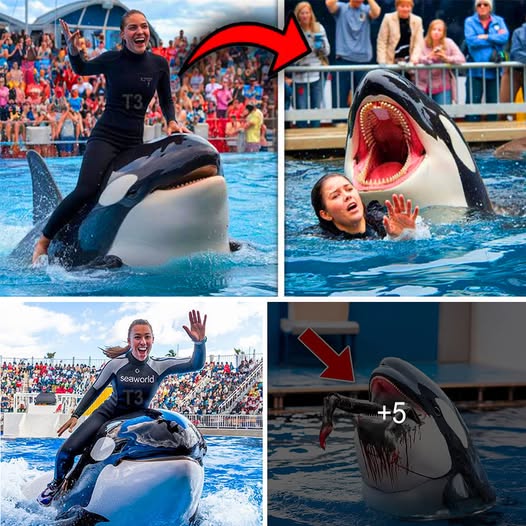The tragic end of Maris Ellington, an orca trainer at Ocean World, reveals the dark side of marine entertainment and forces us to rethink the relationship between humans and animals in captivity.

A connection that ended in horror
In a powerful and moving documentary that has moved the world, the story of Maris Ellington, a passionate orca trainer whose life ended heartbreakingly during a seemingly routine performance, is revived. Maris, known for her deep love for marine animals and her absolute dedication to their well-being, shared a special bond with a mighty orca named Cairo. But that connection, which many saw as unique, was tragically severed in a matter of seconds.

The moment everything changed
What was supposed to be just another performance for the Ocean World audience turned into a nightmare. Cairo, the aquarium’s largest specimen, performed unexpectedly and fatally. Before the eyes of hundreds of spectators, the spectacle descended into chaos, leaving an indelible mark on the history of marine parks. This moment not only shattered lives, but also shattered illusions about the supposed harmony between humans and animals in captivity.
A story that raises awareness
Maris Ellington’s case goes far beyond a personal tragedy. Her story reopens a necessary debate: Is it ethical to use creatures as intelligent and sensitive as orcas to entertain audiences? To what extent can trainers trust animals that, despite affection, remain wild by nature?
This documentary doesn’t just chronicle a catastrophe; it forces us to look squarely at the risks faced by trainers and the conditions in which marine animals live in theme parks.
A catalyst for change?
Following Maris’s death, activists and experts have raised their voices to demand a rethinking of the recreational use of marine wildlife. The relationship between humans and wild animals can no longer be based on spectacle, but rather on respect, preservation, and a deep understanding of their natural needs.
Maris Ellington’s story must be told again and again. Not only out of respect for her memory, but to drive real change in the way the world views and treats animals in captivity.

